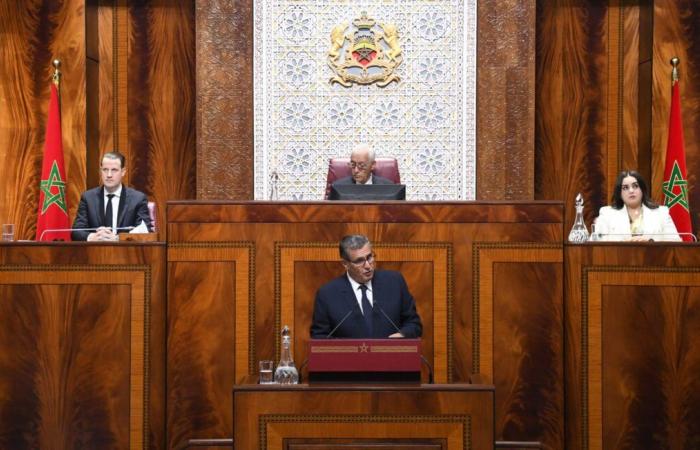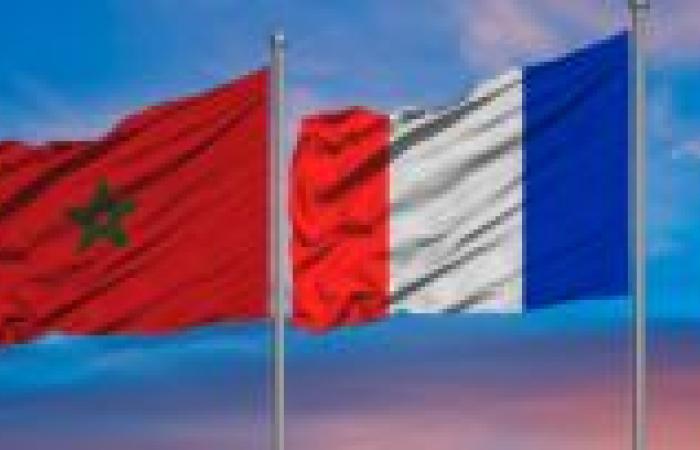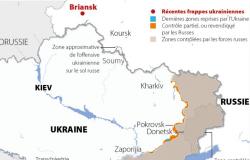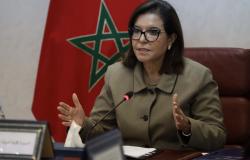During the monthly session of oral questions in the House of Advisors, the head of government, Aziz Akhannouch, presented the progress made by Morocco in the industrial field. He highlighted the strategies driven by King Mohammed VI, which made it possible to transform the Kingdom into a competitive and attractive industrial destination, while contributing to its economic sovereignty, arguing that since his accession to the Throne, King Mohammed VI has adopted a clear strategic vision to modernize and boost national industry, positioning Morocco as a key player on the international scene.
A strategic trajectory for industrialization
Morocco’s industrial strategy is based on several flagship initiatives, implemented under the High Royal Guidelines. Aziz Akhannouch recalled the importance of the Emergence Plan (2005), which laid the foundations for an ambitious industrial policy. This plan was followed by the National Pact for Industrial Emergence (2009), which consolidated these achievements by introducing more targeted objectives, particularly in key sectors such as automobiles, aeronautics and information technologies. .
The Industrial Acceleration Plan (2014-2020) marked a further step by expanding the value chains of strategic sectors and attracting leading foreign investments. More recently, the Investment Charter (2022) has reinforced this dynamic, by establishing financial and spatial incentives to encourage a balanced geographical distribution of industrial investments across the Kingdom.
These policies have been supported by major infrastructure projects, such as the Tangier Med port, now ranked as the leading container port in Africa and the Mediterranean, as well as the development of a 1,800 kilometer motorway network, compared to only 80 kilometers in 1999. These structuring achievements demonstrate Morocco’s commitment to equipping itself with the necessary means to become a leading industrial player.
Industrial zones and economic sovereignty
As part of this strategy, Morocco has developed 150 industrial zones covering 13,600 hectares. These zones, spread across the entire territory, offer an attractive environment for investors and support decentralized industrialization. In addition, emblematic projects such as the Mohammed VI Tangier Tech City have been launched to strengthen the integration of value chains and diversify the national economy.
Two dedicated defense industrial zones have also been established to attract investment in the arms industry. These zones are part of a desire to strengthen Morocco’s strategic sovereignty, by developing national capacities in a sensitive and crucial sector.
The head of government stressed that these achievements reflect a global strategic vision, aiming to provide Morocco with a modern, competitive and sovereign industry, capable of responding to rapid changes in the global economy.
A strengthened investment dynamic
Aziz Akhannouch presented the results of the Unified Regional Investment Commissions (CRUI), which approved 2,012 industrial projects since the start of the current government mandate. These projects, representing a total investment of 800 billion dirhams (MMDH), should generate 275,000 direct jobs.
The new Investment Charter, which entered into force in 2022, played a key role in this dynamic. It made it possible to multiply the operating capital of industrial projects by 10, reaching 140 billion dirhams between May 2023 and November 2024, compared to 13 billion dirhams during the previous period. This charter focuses on strategic sectors, including the automotive, aeronautical, electronics and pharmaceutical industries, while encouraging innovation and cutting-edge technologies.
At the same time, the government has simplified administrative procedures for investors, in particular via the “CRI-Invest” digital platform, which centralizes requests and reduces processing times. Particular attention was also paid to supporting very small, small and medium-sized enterprises (SMEs), with the establishment of a specific legal framework to support their development.
Key sectors: automotive, aeronautics and biotechnology
Morocco has positioned itself as an industrial leader in Africa in several strategic sectors. In the automotive industry, the country has become a continental hub, with an annual production capacity of 700,000 vehicles. The sector’s exports reached 148 billion dirhams in 2023, an increase of 28.4% compared to the previous year. The local integration rate currently stands at 69%, with the aim of increasing it to 80% in the years to come.
In the field of aeronautics, Morocco is home to more than 150 international companies, including Boeing and Airbus. This sector achieved exports of 20 billion dirhams in 2024, recording growth of 20% compared to 2023.
The pharmaceutical sector has also seen significant expansion, with the establishment of a vaccine production unit. This unit, with a production capacity of 116 million units, covers 70% of national needs and 60% of African needs.
Energy transition and carbon-free industry
The energy transition constitutes a central pillar of Moroccan industrial strategy. The Kingdom aims to increase the share of renewable energies in its energy mix to 52% by 2030. Strategic projects, such as the construction of a very high voltage electricity line linking the south and center of the country, aim to reduce the carbon footprint of national industry while strengthening its competitiveness.
The head of government also highlighted the growing role of green hydrogen, with the launch of the “Morocco Offer” initiative, which attracted the interest of many international investors. This initiative aims to position Morocco as a key player in this emerging field.
Innovation and research and development
Innovation occupies a central place in Moroccan industrial policy. In partnership with the General Confederation of Moroccan Enterprises (CGEM), the government launched an integrated program to support industrial innovation. To date, 108 projects have benefited from funding, for a total amount of 615 million dirhams.
These initiatives aim to strengthen the competitiveness of Moroccan companies and enable them to adapt to technological developments. The government has also supported technological infrastructure, notably industrial technical centers and competitiveness clusters, in order to stimulate research and development and innovation.
The head of government concluded his speech by emphasizing that the progress made in the Moroccan industrial sector is the result of a clear and coherent strategic vision, supported by the High Royal Guidelines. These advances are based on a modernized institutional framework, cutting-edge infrastructure and an incentive policy that attracts local and foreign investors.
However, Morocco must continue to support global changes and strengthen its capacities in emerging sectors, such as artificial intelligence, renewable energies, and biotechnologies. By relying on its natural assets, its human potential and its stable economic environment, the Kingdom has the necessary bases to consolidate its positioning as a benchmark industrial platform on a global scale, he affirmed.
LNT
Share this article:







